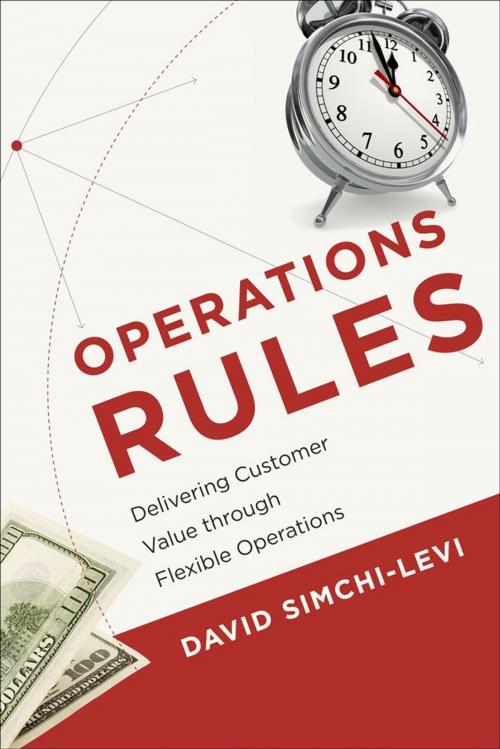Operations Rules
Delivering Customer Value through Flexible Operations
Business & Finance, Management & Leadership, Operations Research, Production & Operations Management| Author: | David Simchi-Levi | ISBN: | 9780262289023 |
| Publisher: | The MIT Press | Publication: | September 24, 2010 |
| Imprint: | The MIT Press | Language: | English |
| Author: | David Simchi-Levi |
| ISBN: | 9780262289023 |
| Publisher: | The MIT Press |
| Publication: | September 24, 2010 |
| Imprint: | The MIT Press |
| Language: | English |
An expert offers a set of rules that will help managers achieve dramatic improvements in operations performance.
In recent years, management gurus have urged businesses to adopt such strategies as just-in-time, lean manufacturing, offshoring, and frequent deliveries to retail outlets. But today, these much-touted strategies may be risky. Global financial turmoil, rising labor costs in developing countries, and huge volatility in the price of oil and other commodities can disrupt a company's entire supply chain and threaten its ability to compete. In Operations Rules, David Simchi-Levi identifies the crucial element in a company's success: the link between the value it provides its customers and its operations strategies. And he offers a set of scientifically and empirically based rules that management can follow to achieve a quantum leap in operations performance.
Flexibility, says Simchi-Levi, is the single most important capability that allows firms to innovate in their operations and supply chain strategies. A small investment in flexibility can achieve almost all the benefits of full flexibility. And successful companies do not all pursue the same strategies. Amazon and Wal-Mart, for example, are direct competitors but each focuses on a different market channel and provides a unique customer value proposition—Amazon, large selection and reliable fulfillment; Wal-Mart, low prices—that directly aligns with its operations strategy. Simchi-Levi's rules—regarding such issues as channels, price, product characteristics, value-added service, procurement strategy, and information technolog—-transform operations and supply chain management from an undertaking based on gut feeling and anecdotes to a science.
An expert offers a set of rules that will help managers achieve dramatic improvements in operations performance.
In recent years, management gurus have urged businesses to adopt such strategies as just-in-time, lean manufacturing, offshoring, and frequent deliveries to retail outlets. But today, these much-touted strategies may be risky. Global financial turmoil, rising labor costs in developing countries, and huge volatility in the price of oil and other commodities can disrupt a company's entire supply chain and threaten its ability to compete. In Operations Rules, David Simchi-Levi identifies the crucial element in a company's success: the link between the value it provides its customers and its operations strategies. And he offers a set of scientifically and empirically based rules that management can follow to achieve a quantum leap in operations performance.
Flexibility, says Simchi-Levi, is the single most important capability that allows firms to innovate in their operations and supply chain strategies. A small investment in flexibility can achieve almost all the benefits of full flexibility. And successful companies do not all pursue the same strategies. Amazon and Wal-Mart, for example, are direct competitors but each focuses on a different market channel and provides a unique customer value proposition—Amazon, large selection and reliable fulfillment; Wal-Mart, low prices—that directly aligns with its operations strategy. Simchi-Levi's rules—regarding such issues as channels, price, product characteristics, value-added service, procurement strategy, and information technolog—-transform operations and supply chain management from an undertaking based on gut feeling and anecdotes to a science.















